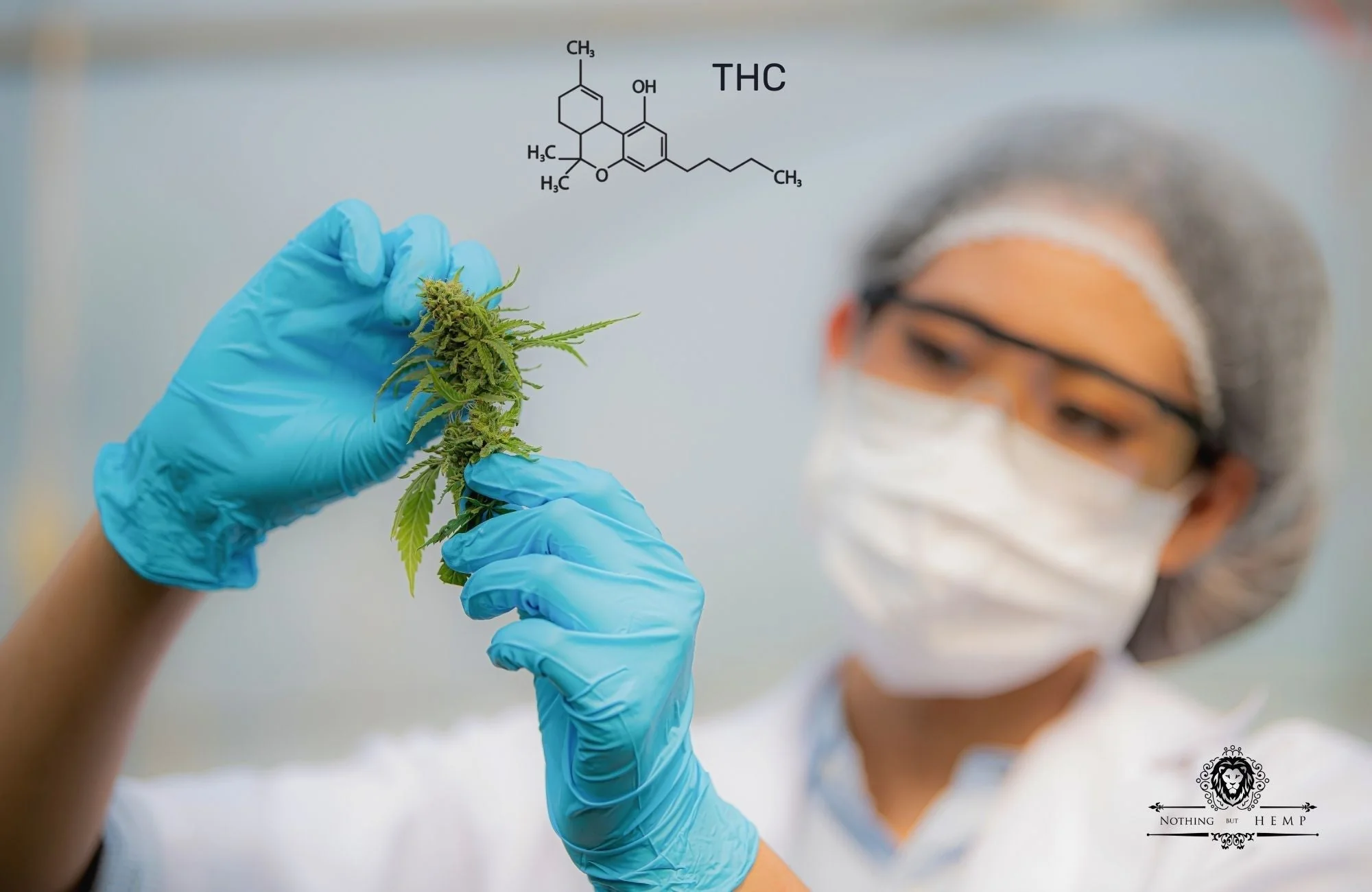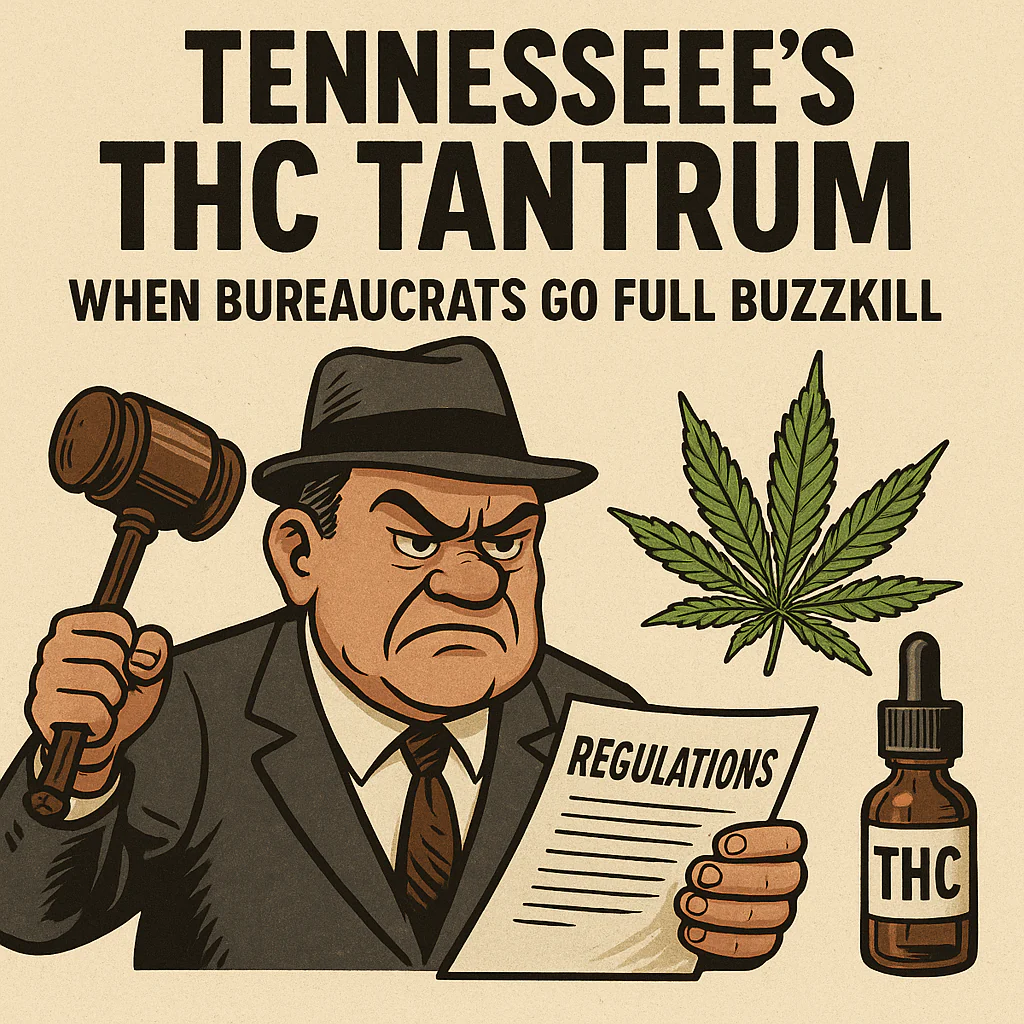Picture it: Wisconsin lawmakers gather in a committee room, wringing their hands over gummies. Not fentanyl. Not opioids. Not liquor, which causes tens of thousands of deaths a year. Nope. Gummies. And not even marijuana gummies — we’re talking hemp-derived THC gummies and beverages. The horror!
So here we are in 2025, where some Republican legislators want to ban hemp-derived THC products statewide. Their justification? That scary word synthetic. (WISN) Cue dramatic thunderclap.
The only problem: synthetic cannabinoids are already illegal. Wisconsin banned “K2,” “Spice,” and the other lab-made zombie drugs years ago . What lawmakers are really talking about are converted cannabinoids — like delta-8 — which come from hemp-derived CBD through a process called isomerization. Translation: it’s not Frankenstein chemistry, it’s just nudging molecules into a form that nature already makes. In other words, science sped up Mother Nature.
So why the freak-out? And why does it matter? Let’s dive in.
Synthetics vs. Conversions: Lawmakers, Please Get a Dictionary
Synthetic cannabinoids: Dangerous lab creations designed to mimic THC but not found in nature. Already illegal. Done.
Converted cannabinoids: Take CBD, shuffle it around a little, and presto — delta-8, delta-10, HHC, etc. Not spooky. Not “synthetic” in the K2 sense. Just a faster route to something the plant can produce anyway. The risk isn’t that conversion exists; the risk is bad actors skipping lab tests and leaving behind impurities. That’s where regulation steps in.
Calling delta-8 “synthetic” is like calling sourdough bread “illegal chemicals” because yeast sped up a natural process.
The Garlic Bread Incident: Wrong Lesson Learned
Lawmakers love to point at the October 2024 Stoughton case, where THC-laced garlic bread sickened 85 people. Yes, that happened. Yes, it was bad. But let’s use logic here:
- If a restaurant serves food contaminated with salmonella, do we ban chicken?
- If someone spikes the punch bowl at prom, do we outlaw Kool-Aid?
- If one baker screws up THC handling, do we punish every hemp farmer in the state?
The right answer isn’t ban it all, it’s set kitchen rules, require licensing, enforce labeling, and punish the people who actually screwed up. Otherwise, you’re just banning ovens because someone burned toast.
The Comedy of Overreaction
Let’s imagine the Capitol hearing that birthed this bill:
Chairperson: “Citizens are eating THC gummies!”
Lawmaker #1: “Ban the gummies!”
Lawmaker #2: “What about soda with THC?”
Chairperson: “Ban that too!”
Lawmaker #3: “What about lotion?!”
Chairperson: “Ban all plants, just to be safe.”
It’d be hilarious if it weren’t true policy. The reflex is always the same: “Problem? Ban it.” It’s lazy politics that plays well in soundbites but fails in reality.
Other States Tried Things. Here’s What Happened.
Instead of panic-banning, let’s look at what smarter states did:
Minnesota: Guardrails, Not Guillotines
In 2022, Minnesota legalized hemp-derived edibles with 5 mg THC per serving and 50 mg per package. Lawmakers refined rules in 2025 to require clearer beverage labels【web†source】.
Yes, enforcement lagged early. But guess what? The state didn’t ban everything; it funded inspectors, created the Office of Cannabis Management, and adjusted rules. Consumers get tested products, kids can’t buy them, and businesses can plan. Imagine that: government doing grown-up things.
Kentucky & Tennessee: 21+ and Taxes, Baby
Kentucky’s HB 544 (2023) didn’t ban delta-8. Instead, it slapped on 21+ sales, testing, and labeling. Tennessee did the same in 2023, even adding taxes【web†source】. Funny how the Bible Belt figured out regulation while Wisconsin is still yelling “loophole!”
Virginia: The Buzzkill Approach
Virginia capped hemp products at 2 mg THC per package unless paired with a boatload of CBD. Courts upheld it, but enforcement found 82% of stores breaking the rules and $10M+ in fines【web†source】. Lesson? If you make laws impossible to follow, people just ignore them.
Why Regulation Beats Bans Every Time
Here’s why Wisconsin should ditch the ban-hammer:
-
Demand Doesn’t Vanish
Ban hemp-THC and consumers just drive across state lines, shop online, or hit the black market. Congrats, you made products less safe and handed revenue to sketchy players. -
Jobs & Farmers Lose
Hemp is one of Wisconsin’s oldest crops. Small farms and shops will be gutted, while big out-of-state weed companies rub their hands together. Way to stand up for the locals, guys. -
Tax Money Up in Smoke
Other states tax these products and fund education, inspections, and public health. Wisconsin? It’d get nothing but enforcement costs. That’s like burning $100 bills to “save money.” -
Criminalization Is Messy
Now cops and courts have to decide: Is that gummy a felony or a fruit snack? Spoiler: prosecutors don’t have time for THC Skittle trials.
Our Position: Regulate Us, Please
We’re not saying hemp-derived THC should be a free-for-all. Quite the opposite. Here’s what we support:
- Age restrictions: 21+ only. Period.
- Serving caps: Reasonable potency limits (5–10 mg per serving, 100 mg per package).
- Testing: Mandatory lab tests for purity, potency, and contaminants.
- Labels: Clear THC warnings, no cartoon characters, no candy-copycat packaging.
- Licensing & inspections: Real oversight with consequences for cheaters.
- Taxes: Let Wisconsin collect revenue instead of pretending the market doesn’t exist.
That’s the adult way to govern.
What Wisconsin Risks If It Screws This Up
- A thriving underground market with zero oversight.
- More contaminated products, not fewer.
- Farmers and retailers crushed while consumers just order online from states with sensible rules.
- Years of litigation over vague definitions like “synthetic cannabinoid.”
- Looking like the last state to get the memo while neighbors regulate and prosper.
It’s prohibition déjà vu: history’s dumbest loop.
Final Thought: Ban the Stupid, Not the Science
Wisconsin lawmakers are treating hemp-derived THC like the boogeyman hiding under the bed. But here’s the truth: synthetics are already banned, conversions just need oversight, and other states have already written the playbook.
Regulation isn’t radical. It’s boring, bureaucratic, paperwork-heavy stuff that keeps people safe and businesses honest. Which is exactly why it works.
So let’s leave the gummy panic in the 1950s playbook, alongside “Reefer Madness” reels and rotary phones. Wisconsin can do better. Heck, if Kentucky can figure this out, so can we.








































